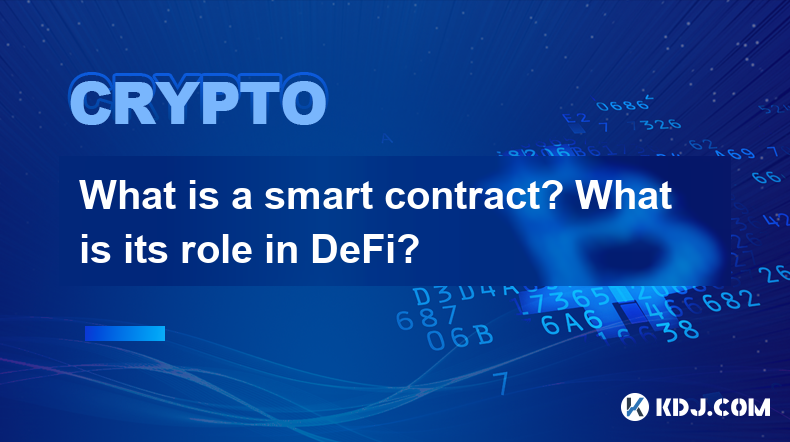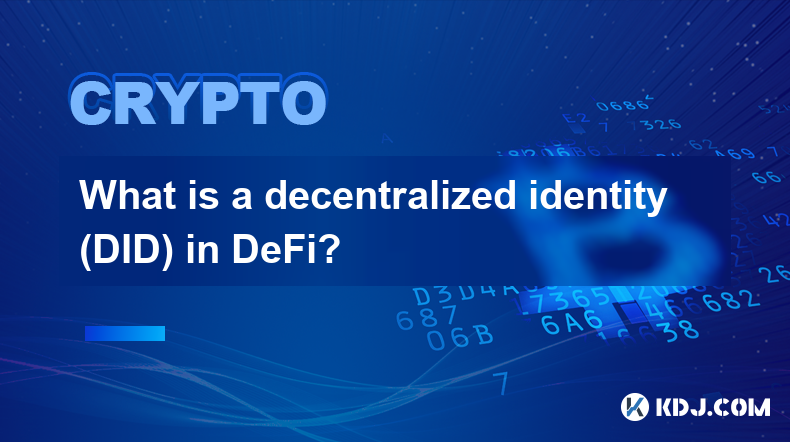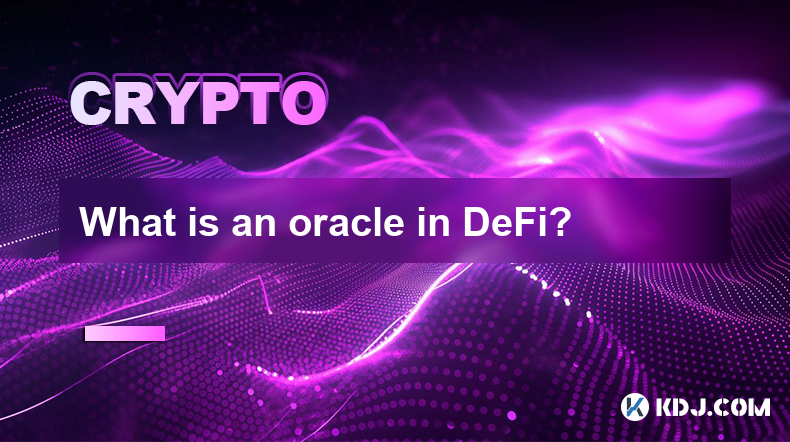-
 Bitcoin
Bitcoin $86,788.3469
1.91% -
 Ethereum
Ethereum $1,898.2348
-0.95% -
 Tether USDt
Tether USDt $1.0001
0.01% -
 XRP
XRP $2.1474
0.27% -
 BNB
BNB $603.9357
-0.82% -
 Solana
Solana $130.2309
1.79% -
 USDC
USDC $0.9999
0.00% -
 Dogecoin
Dogecoin $0.1724
-0.15% -
 Cardano
Cardano $0.6875
0.36% -
 TRON
TRON $0.2380
0.72% -
 Toncoin
Toncoin $4.0182
0.06% -
 Chainlink
Chainlink $13.9088
-2.72% -
 UNUS SED LEO
UNUS SED LEO $9.3925
0.39% -
 Stellar
Stellar $0.2719
-1.68% -
 Avalanche
Avalanche $19.5295
-0.62% -
 Sui
Sui $2.4484
-0.62% -
 Shiba Inu
Shiba Inu $0.0...01262
-1.71% -
 Hedera
Hedera $0.1704
-1.02% -
 Polkadot
Polkadot $4.1548
-1.00% -
 Litecoin
Litecoin $85.6080
0.71% -
 Bitcoin Cash
Bitcoin Cash $309.9792
-0.89% -
 MANTRA
MANTRA $6.3575
0.12% -
 Bitget Token
Bitget Token $4.6075
0.26% -
 Dai
Dai $0.9997
-0.02% -
 Ethena USDe
Ethena USDe $0.9999
0.02% -
 Hyperliquid
Hyperliquid $13.8730
3.24% -
 Pi
Pi $0.6785
-4.19% -
 Monero
Monero $219.8055
0.69% -
 Uniswap
Uniswap $6.2046
-1.00% -
 Aptos
Aptos $5.3848
-0.97%
What is a smart contract? What is its role in DeFi?
Self-executing contracts, smart contracts automate DeFi processes via blockchain-stored code, boosting efficiency but posing security risks if not thoroughly audited.
Mar 25, 2025 at 09:36 am

Key Points:
- Smart contracts are self-executing contracts with the terms of the agreement between buyer and seller being directly written into lines of code.
- They are stored on a blockchain, ensuring transparency and immutability.
- In DeFi, smart contracts automate various financial processes, eliminating intermediaries and increasing efficiency.
- They power Decentralized Exchanges (DEXs), lending platforms, and other DeFi applications.
- Security vulnerabilities in smart contracts pose significant risks to DeFi projects.
What is a Smart Contract?
A smart contract is a self-executing contract with the terms of the agreement between buyer and seller being directly written into lines of code. This code is stored on a blockchain, a decentralized and immutable ledger. When predetermined conditions are met, the contract automatically executes, transferring assets or performing other agreed-upon actions. This automation eliminates the need for intermediaries, such as lawyers or notaries, and speeds up transactions. The transparency of the blockchain allows anyone to view the contract's code and execution history.
How Smart Contracts Work:
Smart contracts utilize blockchain technology to function. The contract's code is written in programming languages like Solidity (for Ethereum) and deployed onto the blockchain. Once deployed, the contract's code is publicly accessible and verifiable. The contract's logic defines the conditions that trigger its execution. When these conditions are met, the blockchain automatically executes the specified actions, such as transferring cryptocurrency or issuing tokens. This process is transparent, secure, and irreversible.
Smart Contracts and Decentralized Finance (DeFi):
Decentralized Finance (DeFi) relies heavily on smart contracts to facilitate various financial operations. These contracts automate processes that would traditionally require centralized intermediaries, such as banks or brokers. This decentralization reduces costs, improves efficiency, and enhances transparency. Smart contracts are the backbone of many DeFi applications.
The Role of Smart Contracts in DeFi Applications:
Smart contracts are integral to many DeFi applications. Let's examine a few examples:
- Decentralized Exchanges (DEXs): DEXs use smart contracts to facilitate the exchange of cryptocurrencies without the need for a central authority. The contracts automatically execute trades based on user-specified parameters, such as price and quantity.
- Lending and Borrowing Platforms: Smart contracts automate the lending and borrowing process on DeFi platforms. Borrowers can access loans by providing collateral, and lenders earn interest on their deposited assets. The contracts manage the collateral, interest payments, and loan repayment.
- Stablecoins: Many stablecoins utilize smart contracts to maintain their peg to a fiat currency like the US dollar. These contracts manage the reserves and ensure that the stablecoin's value remains stable.
- Yield Farming: Smart contracts are crucial for yield farming, a process that involves lending or staking cryptocurrencies to earn rewards. The contracts automatically distribute rewards to participants based on their contributions.
Security Considerations in Smart Contracts:
The security of smart contracts is paramount. A vulnerability in a smart contract can lead to significant financial losses. Therefore, thorough auditing and testing are essential before deploying smart contracts to a production environment. Common vulnerabilities include reentrancy attacks, arithmetic overflow/underflow, and denial-of-service attacks. Experienced developers and rigorous security audits can help mitigate these risks.
Writing and Deploying Smart Contracts:
Writing a smart contract requires expertise in programming languages like Solidity or Vyper. The process generally involves:
- Defining the contract's logic: This includes specifying the conditions that trigger execution and the actions to be performed.
- Writing the code: The contract's logic is translated into code using a suitable programming language.
- Compiling the code: The code is compiled into bytecode, which is understood by the blockchain's virtual machine.
- Deploying the contract: The compiled bytecode is deployed to the blockchain network, making the contract accessible.
- Testing the contract: Thorough testing is essential to identify and fix any bugs or vulnerabilities before deploying the contract to a mainnet.
Beyond the Basics: Advanced Smart Contract Features:
Beyond the fundamental functionalities, advanced features enhance smart contracts' capabilities:
- Oracles: Oracles bridge the gap between the blockchain and the real world, providing off-chain data to smart contracts. This enables smart contracts to react to real-world events.
- State Channels: State channels allow for faster and cheaper transactions by moving interactions off the main blockchain.
- Zero-Knowledge Proofs (ZKPs): ZKPs allow for verifying information without revealing the underlying data, enhancing privacy in smart contracts.
Common Questions:
Q: Are smart contracts legally binding? A: The legal status of smart contracts is still evolving, varying by jurisdiction. While the code is automatically executed, enforceability depends on the applicable laws and the specific contract's terms.
Q: How secure are smart contracts? A: Smart contracts are as secure as the code they are built upon. Vulnerabilities can be exploited, leading to financial losses. Thorough auditing and testing are crucial for security.
Q: Can anyone create a smart contract? A: Creating functional and secure smart contracts requires significant programming skills and knowledge of blockchain technology.
Q: What are the benefits of using smart contracts in DeFi? A: Smart contracts automate processes, increase transparency, reduce costs, and improve efficiency in DeFi applications.
Q: What are the risks associated with smart contracts in DeFi? A: Risks include security vulnerabilities, legal uncertainties, and potential for exploits that can lead to significant financial losses.
Disclaimer:info@kdj.com
The information provided is not trading advice. kdj.com does not assume any responsibility for any investments made based on the information provided in this article. Cryptocurrencies are highly volatile and it is highly recommended that you invest with caution after thorough research!
If you believe that the content used on this website infringes your copyright, please contact us immediately (info@kdj.com) and we will delete it promptly.
- Grayscale Launches Two New Bitcoin ETFs: BTCC and BPI
- 2025-04-03 02:05:12
- Bitcoin (BTCUSD) Has Been on an Upward Trajectory Despite Volatility in Crypto and Traditional Markets
- 2025-04-03 02:05:12
- Ripple Integrates Its USD-Backed Stablecoin to Cross-Border Payments System
- 2025-04-03 02:00:12
- Dogecoin (DOGE) Forms Inverse H&S Pattern, Presenting Immediate Breakout Targets
- 2025-04-03 02:00:12
- Retesting the 61.8% Fibonacci Retracement Level Could Be a Defining Moment for the SOL/USD Pair
- 2025-04-03 01:55:13
- Ozak AI (OZ) Could Be the Next 1000x Gainer, Not Gold
- 2025-04-03 01:55:13
Related knowledge

What is a decentralized identity (DID) in DeFi?
Mar 23,2025 at 11:57am
Key Points:Decentralized Identifiers (DIDs) offer a self-sovereign approach to digital identity management, crucial for DeFi's privacy and security needs.DIDs operate independently of centralized authorities, empowering users with control over their data.Integrating DIDs into DeFi applications enhances user privacy, reduces reliance on intermediaries, a...

What does "composability" mean in DeFi?
Mar 14,2025 at 12:36pm
Key Points:Composability in DeFi refers to the ability of different decentralized finance (DeFi) protocols to interact and combine seamlessly, creating novel financial products and services.This interoperability is a core tenet of the DeFi ecosystem, fostering innovation and efficiency.Understanding composability requires exploring its mechanisms, benef...

What is token economics in DeFi?
Mar 14,2025 at 03:20am
Key Points:Token economics in DeFi defines how tokens are used to incentivize and govern decentralized finance (DeFi) protocols.It encompasses token utility, distribution mechanisms, and economic models designed to ensure sustainability and growth.Understanding token economics is crucial for evaluating the long-term viability and potential risks of DeFi...

How are transaction fees calculated in DeFi?
Mar 14,2025 at 04:25am
Key Points:DeFi transaction fees vary significantly depending on the specific protocol, network congestion, and the complexity of the transaction.Gas fees, a crucial component, are paid in the native token of the blockchain (e.g., ETH on Ethereum).Factors influencing gas fees include the type of transaction, data size, and network demand.Protocols often...

What is an oracle in DeFi?
Mar 22,2025 at 06:50am
Key Points:Oracles bridge the gap between on-chain and off-chain data in DeFi, providing real-world information to smart contracts.Different oracle types exist, each with its own strengths and weaknesses, including centralized, decentralized, and hybrid oracles.Security and reliability are crucial concerns for oracles, as vulnerabilities can lead to sig...

What is a cross-chain bridge? What is its role in DeFi?
Mar 14,2025 at 10:00am
Key Points:Cross-chain bridges facilitate the transfer of assets between different blockchains.They are crucial for DeFi's interoperability, allowing users to access diverse applications and liquidity pools across various networks.Several types of cross-chain bridges exist, each with its own security and scalability trade-offs.Understanding the risks as...

What is a decentralized identity (DID) in DeFi?
Mar 23,2025 at 11:57am
Key Points:Decentralized Identifiers (DIDs) offer a self-sovereign approach to digital identity management, crucial for DeFi's privacy and security needs.DIDs operate independently of centralized authorities, empowering users with control over their data.Integrating DIDs into DeFi applications enhances user privacy, reduces reliance on intermediaries, a...

What does "composability" mean in DeFi?
Mar 14,2025 at 12:36pm
Key Points:Composability in DeFi refers to the ability of different decentralized finance (DeFi) protocols to interact and combine seamlessly, creating novel financial products and services.This interoperability is a core tenet of the DeFi ecosystem, fostering innovation and efficiency.Understanding composability requires exploring its mechanisms, benef...

What is token economics in DeFi?
Mar 14,2025 at 03:20am
Key Points:Token economics in DeFi defines how tokens are used to incentivize and govern decentralized finance (DeFi) protocols.It encompasses token utility, distribution mechanisms, and economic models designed to ensure sustainability and growth.Understanding token economics is crucial for evaluating the long-term viability and potential risks of DeFi...

How are transaction fees calculated in DeFi?
Mar 14,2025 at 04:25am
Key Points:DeFi transaction fees vary significantly depending on the specific protocol, network congestion, and the complexity of the transaction.Gas fees, a crucial component, are paid in the native token of the blockchain (e.g., ETH on Ethereum).Factors influencing gas fees include the type of transaction, data size, and network demand.Protocols often...

What is an oracle in DeFi?
Mar 22,2025 at 06:50am
Key Points:Oracles bridge the gap between on-chain and off-chain data in DeFi, providing real-world information to smart contracts.Different oracle types exist, each with its own strengths and weaknesses, including centralized, decentralized, and hybrid oracles.Security and reliability are crucial concerns for oracles, as vulnerabilities can lead to sig...

What is a cross-chain bridge? What is its role in DeFi?
Mar 14,2025 at 10:00am
Key Points:Cross-chain bridges facilitate the transfer of assets between different blockchains.They are crucial for DeFi's interoperability, allowing users to access diverse applications and liquidity pools across various networks.Several types of cross-chain bridges exist, each with its own security and scalability trade-offs.Understanding the risks as...
See all articles
























































































